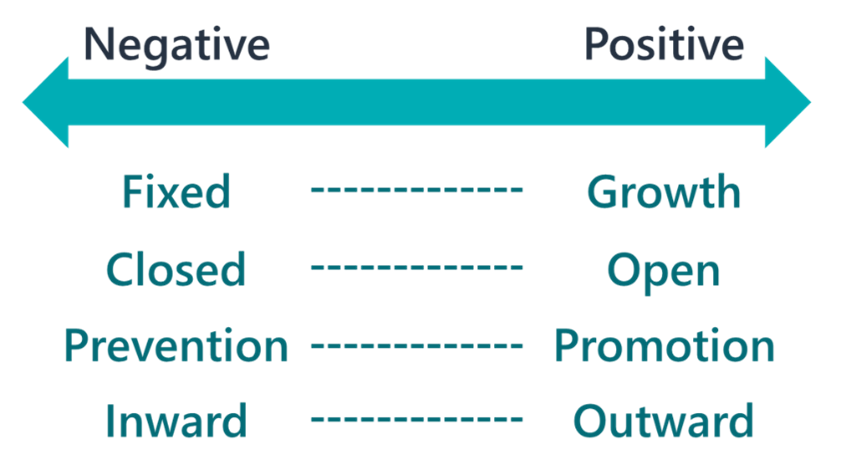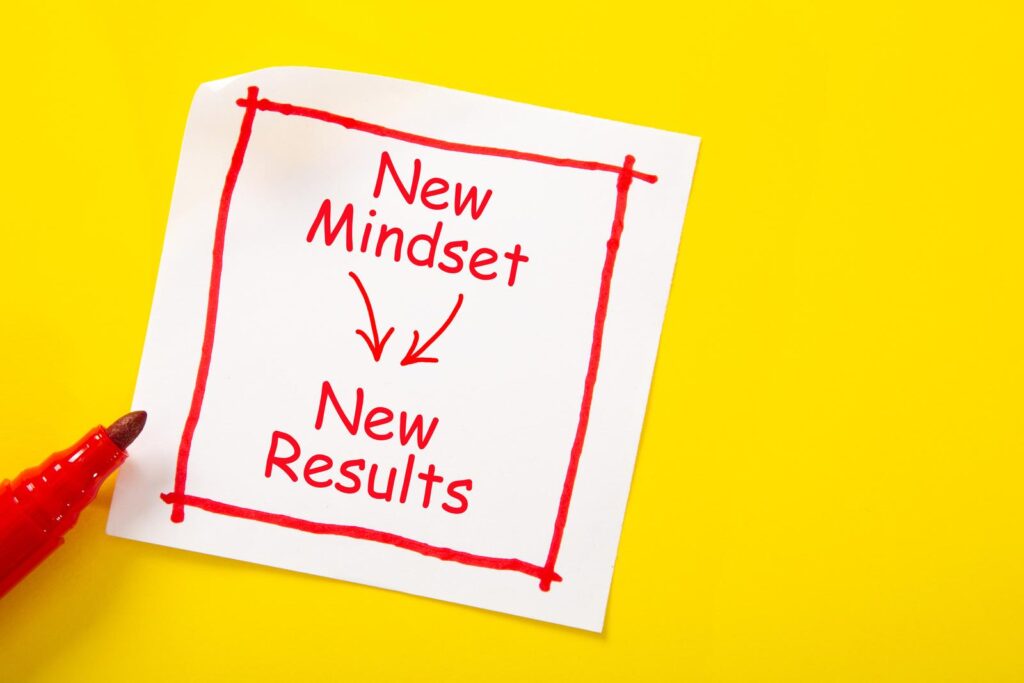If there is one lesson I could teach early career employees, it is this: The trajectory of your career and success will be much steeper with success mindsets than without success mindsets.
What are Success Mindsets?
We all have a variety of different mindsets. Our mindsets are mental lenses, or mental habits, that cause us to see and process our world in unique ways. For example, they explain why:
- Some people quickly get defensive when they receive constructive criticism, while others will seek to learn and grow when they receive that exact same constructive criticism
- Some students give up on a class after a bad grade on the first exam, while other student double-down on a class after a bad grade on the first exam
- Some job seekers are more proactive in their job search efforts, seeking out the job that will get them closer to their long-term goals; while other job seekers are more passive in their job search efforts, taking the job that is most convenient for them
There has been over 40 years of research on mindsets across the disciplines of psychology, education, management, and marketing. Across this research, researchers have found that there are different sets of mindsets that generally come in pairs, with one mindset leading to more negative outcomes and the other mindset leading to more positive outcomes.
These pairs are:

For each of us, the quality of our mindsets falls somewhere along each of these four sets of mindsets.
If you would like to assess the quality of your mindsets, click here to take a 20-question mindset assessment that is the most comprehensive and research-backed mindset assessment available. It will help you identify the degree to which you have more self-protective (i.e., negative) mindsets or value-creating (i.e., positive) mindsets.
Forty years of research has confirmed that the more an individual has the positive mindsets on the right (i.e., Success Mindsets), the steeper one’s trajectory in their career.
Why are the Success Mindsets So Important for One’s Career Trajectory
I have had over 40,000 people take my mindset assessment, and I have found that the people with the most self-protective (i.e., negative mindsets) are my college students. But, not all of them have self-protective mindsets.
If I have two students or recent graduates, and one has the four negative mindsets and the other has the four positive mindsets, I can state with certainty that the person with the positive mindsets will be much more successful in their life, career, and leadership than the person with the negative mindsets (at least until the person with the negative mindsets takes the effort to upgrade their mindsets).
Here is why:
- People with a growth mindset approach learning-zone challenges, while people with a fixed mindset avoid learning-zone challenges
- People with an open mindset have the humility to consistently learn and grow, while people with a closed mindset lack the humility to consistently learn and grow
- People with a promotion mindset are purpose- and goal-oriented, while people with a prevention mindset are comfort-oriented
- People with an outward mindset see and value others as people, while people with an inward mindset see and value others as objects
When one has the Success Mindsets, they are wired to approach their work and career in a manner that leads to continual growth and success.
How Can You Upgrade Your Mindsets
Most of us have not put concerted effort into elevating our mindsets. If that is you, you should not be surprised if you do not have great mindsets.
If, after taking the mindset assessment, you find that you do not have all four of the Success Mindsets, I have great news for you. You CAN change and elevate your mindsets.
Here is some helpful information for how you can change and elevate your mindsets:
- Our mindsets are neural connections in our brain. We all have a fixed mindset neural connection and a growth mindset connection. But, it just so happens that one of these neural connections is stronger than the other. If that is the case, that stronger neural connection becomes the dominant neural connection that we use to process our world.
- Our neural connections are a lot like our muscles, the more we use them and work them out, the stronger they become.
- If you have a fixed, closed, prevention, or inward mindset, that means that those neural connections are stronger than your growth, open, promotion, or outward mindset neural connections. To develop more growth, open, promotion, or outward mindsets, you need to “hit the gym” for your mind and routinely exercise your growth, open, promotion, and outward mindsets.
For directions on how to do this, you can:
- Check out my Wall Street Journal and USA Today best-selling book: Success Mindsets: Your Keys to Unlocking Greater Success in Your Life, Work, or Leadership
- Download this Personal Mindset Development Planning Guide
Unlocking Greater Success
While this article has been directed at early career individuals, the principles are for everyone.
- Mindsets are foundational to our success
- To elevate our personal and career trajectory, we need to awaken to and elevate our mindsets (the sooner, the better)
- To awaken to and elevate your mindsets, take my personal mindset assessment, and start doing the work of regularly exercising your Success Mindsets
When I started my career, I possessed the negative mindsets. My book, Success Mindsets, features my personal growth journey. By awakening to and elevating my mindsets, I have been able to alter the trajectory of my career. Without making these shifts, I would have never written a book, become a Wall Street Journal and USA Today best-seller, or develop a thought leadership practice that allows me to influence tens of thousands of others on an annual basis.
I am excited for you to unlock greater success in your life and career. Just remember, the key to doing so is in developing Success Mindsets.










